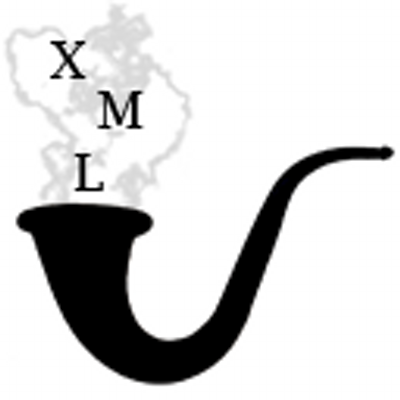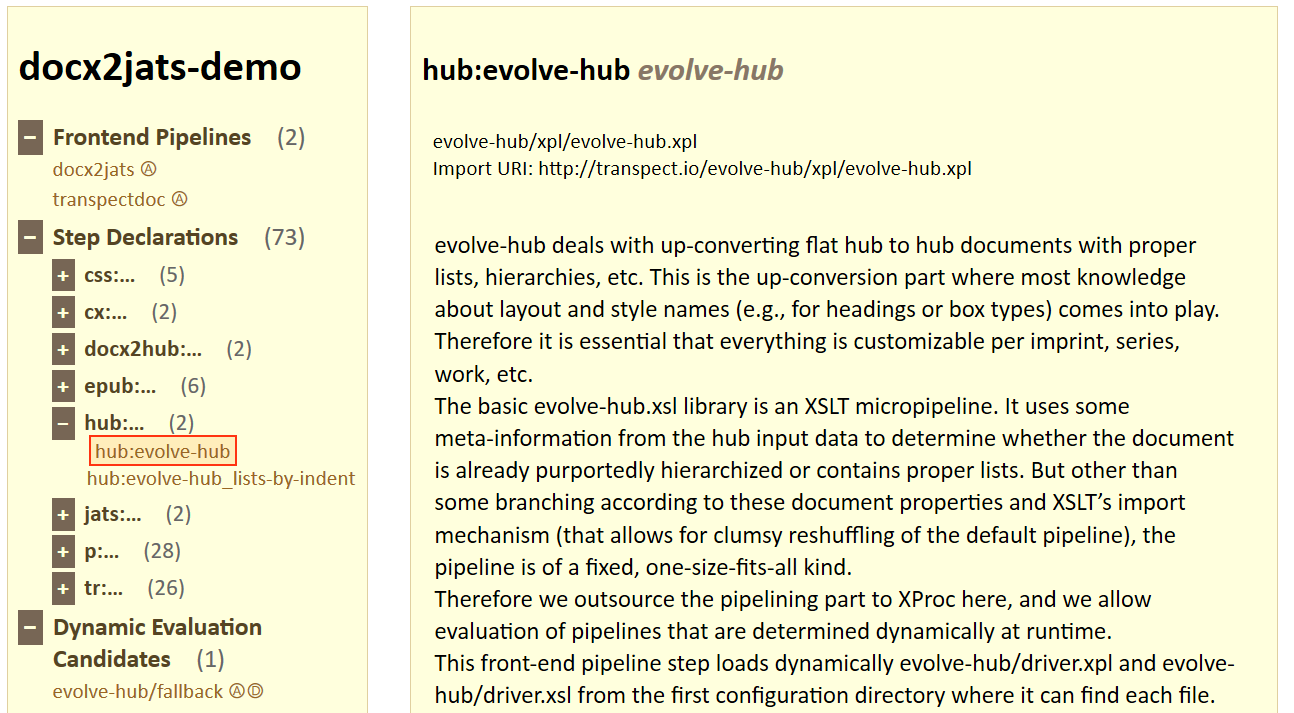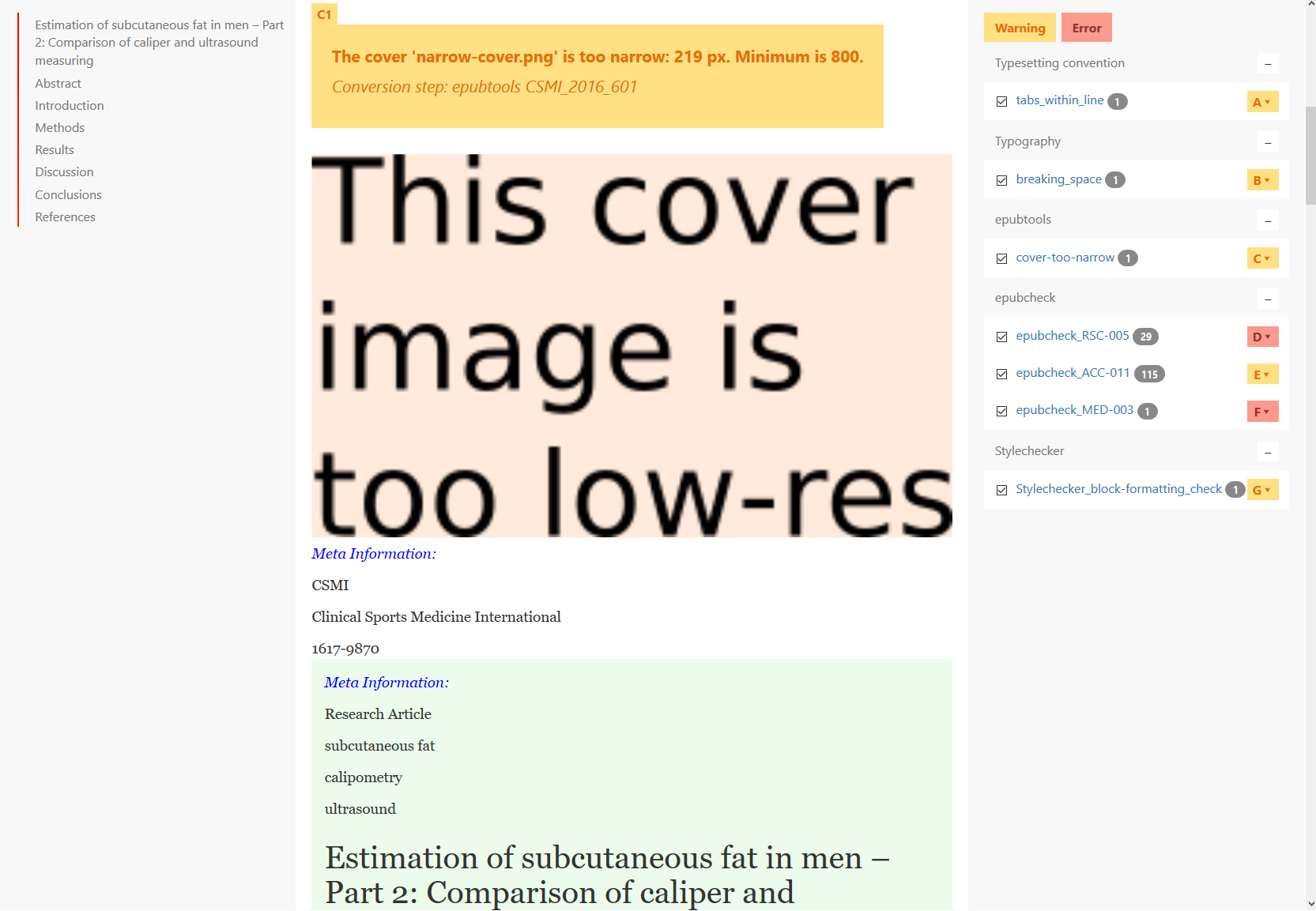Interoperability
of XProc Pipelines
A real-world publishing scenario
…or how we eliminated cx:depends-on="ndw"
Achim Berndzen, <xml-project /> (@xml_project)
Gerrit Imsieke (@gimsieke),
le-tex publishing services GmbH (@letexml)
Background:
Joint project of le-tex publishing services and <xml-project />
Task:
- Migrate a complex XProc pipeline system to another processor
- Keep it runnable on both XProc processors
- Ensure maintainability for pipeline developers
A test case for XProc’s interoperability
Is it possible to run the same real-world pipelines on two processors and produce the same results?
Testing interoperability is an aspect of W3C’s process, but:
- Real world pipelines are more complex than test suite use cases.
- Authors of these will use every feature offered, standard or not.
- XMLCalabash was the only serious choice for production environments.
A test case for XProc’s interoperability
Is it possible to run the same real-world pipelines on two processors and produce the same results?
Who cares (or should care) about interoperability?
| Pipeline users: | Freedom of choice |
|---|---|
| Pipeline authors: | Write once, use everywhere |
| Technology decision makers: | No vendor lock-in, protection of investment |
| XProc community: | Approval of the work done, hints at future tasks |
Our real-world publishing scenario
Start

complex pipeline system
XProc A

Finish
XProc B
Our real-world publishing scenario
Start

transpect


XMLCalabash
Finish

MorganaXProc
Our real-world publishing scenario: docx2jats
- Pipeline that converts .docx files to JATS XML and EPUB
- As used for the XML Prague 2016 transpect tutorial (repo on Github)
- Based on the transpect framework
- 76 distinct steps
- of which 28 belong to
p: - 2 to
pxp:andpos:(EXProc) - 2 to
cx:(Calabash) - 39 to transpect libraries
- 3 are façade steps for extensions written in Java
- and 2 are project-specific
- of which 28 belong to
transpectdoc-generated
project documentation
for docx2jats

transpect: Conversion & Checking Framework
| Functionality | Technology |
|---|---|
|
|
| Methodology | |
|
transpect: Cascaded Configuration
Caption:
XProc runtime
transpect library
project-specific (a9s = adaptations)
docx2jats-demo
├── a9s
│ ├── common
│ │ ├── css
│ │ ├── epubtools
│ │ ├── evolve-hub
│ │ ├── hub2jats
│ │ ├── jats2html
│ │ ├── schematron
│ │ │ ├── evolve-hub
│ │ │ ├── flat
│ │ │ ├── jats
│ │ │ └── styles
│ │ ├── styles
│ │ ├── xpl
│ │ └── xsl
│ └── Imprint1
│ └── Journal1
│ ├── schematron
│ │ └── jats
│ └── styles
├── calabash
│ ├── distro
│ └── extensions
│ └── transpect
├── cascade
├── conf
├── css-tools
├── docx2hub
├── epubcheck-idpf
├── epubtools
├── evolve-hub
├── htmlreports
├── hub2html
├── hub2jats
├── jats2html
├── map-style-names
├── nlm-stylechecker
├── xmlcatalog
├── xproc-util
└── xslt-util
Dynamically evaluate (sub-) pipelines
that are loaded from the cascade (cx:eval)
<tr:xslt mode="hub:split-at-tab"/>
<tr:xslt mode="hub:preprocess-hierarchy"/>
<tr:xslt mode="hub:hierarchy"/>
<tr:xslt mode="hub:postprocess-hierarchy"/>
<hub:evolve-hub_lists-by-indent/>
<tr:xslt-mode mode="hub:clean-hub"/>
<tr:xslt mode="hub:split-at-tab"/>
<tr:xslt mode="hub:preprocess-hierarchy"/>
<tr:xslt mode="hub:hierarchy"/>
<tr:xslt mode="hub:postprocess-hierarchy"/>
<hub:evolve-hub_lists-by-style-name/>
<tr:xslt-mode mode="hub:clean-hub"/>
docx2jats-demo
├── a9s
│ ├── common
│ │ └── evolve-hub
│ │ ├── driver.xpl
│ │ └── driver.xsl
│ └── Imprint1
│ ├── evolve-hub
│ │ └── driver.xsl
│ └── Journal1
│ └── evolve-hub
│ ├── driver.xpl
│ └── driver.xsl
transpect: HTML reports
(see XML Amsterdam 2015 presentation)
<xproc-config xmlns="http://xmlcalabash.com/ns/configuration"
xmlns:tr="http://transpect.io">
<implementation type="tr:unzip" class-name="UnZip"/>
<implementation type="tr:validate-with-rng" class-name="LtxValidateWithRNG"/>
<implementation type="tr:image-identify" class-name="ImageIdentify"/>
<implementation type="tr:image-transform" class-name="ImageTransform"/>
</xproc-config><tr:image-identify name="ii">
<p:with-option name="href"
select="/epub-config/cover/@href"/>
</tr:image-identify><c:results name="narrow-cover.png">
<c:result name="mimetype" value="image/png"/>
<c:result name="formatdescription" value="PNG Portable Network Graphics"/>
<c:result name="formatdetails" value="Png"/>
<c:result name="width" value="219px"/>
<c:result name="height" value="131px"/>
<c:result name="density" value="90dpi"/>
<c:result name="colorspace" value="RGB"/>
<c:result name="transparency" value="true"/>
<c:result name="compressionalgorithm" value="PNG Filter"/>
</c:results>
transpect: Calabash Extensions
HTML reports use Calabash extensions, written in Java:
- jing with error location XPaths (for display at error location)
- read image properties (for Schematron checks)
Other Calabash extensions:
- unzip whole archives to disk (docx, IDML, EPUB, …)
- transform images
Our real world publishing scenario
Start

transpect


XMLCalabash
Finish

MorganaXProc
XMLCalabash – MorganaXProc: Fact sheet
| XMLCalabash | MorganaXProc | |
|---|---|---|
| Developed by: | Norman Walsh – Chair of W3C WG |
<xml-project /> – German start up |
| Since: | 2008. Reference implementation for W3C recommendation | Publicly available since early 2014 |
| Recent version: | 1.1.9 (more than 80 releases) | 0.95–10 (11th release – public beta) |
| Test suite score: | 100% | 99.67% (Three tested optional features not implemented) |
| Highlights: |
|
|
| Licence: | GPL 2.0 | GPL 2.0 |
| Status: | Gold standard | New kid on the block |
Our real world publishing scenario
Start

transpect


XMLCalabash
Finish

MorganaXProc
Possible obstacles to migrate XProc pipelines:
- Implementation defined features in the recommendation e.g. required vs. optional steps (47 items)
- Implementation-dependent features (21 items)
- Processor specific steps and author defined steps in secondary language
- Sketched proposed extension steps from EXProc.org
- Problems from the underlying technologies in façade-steps
What obstacles to expect?
For our concrete migration project:
- Resource management of XProc pipeline systems (XMLCatalog or EXPath packaging system)
- User written extension steps in a secondary language
- Differences in the supported step library: <cx:message/> and <cx:eval/>
- Use of extension attribute "depends-on"
Short on "depends-on"
The evaluation order of steps not connected to one another is implementation-dependent.
But, what if:
<nasp:log-in-to-a-web-service/>
<nasp:send-data-to-this-service/>Solution: extension attribute 'depends-on'
- Introduced by XMLCalabash (Norm Walsh)
- List of step must be executed before this step
- Very useful, but not standard!
Up to the lab: Problems found
- No standard way to import (EXProc) libraries
- Different behaviour of standard steps: <p:store/> etc.
- Different interpretations of the specs:
- Stylesheets without primary result document in <p:xslt/>
- Trying to get an non-existent file in <p:http-request/>
- Trying to create an existing folder with <pfx:mkdir/>
- Different rules for namespace binding in underlying object models (xmlns:d='dummy')
The agenda for migration: Problems and solutions
| Problem: | Solution: |
|---|---|
| Resource management | Add XML Catalog support to MorganaXProc |
| Divergent interpretation on <p:store/> etc. | Adapt MorganaXProc to XML Calabash’s interpretation |
| User defined steps in a secondary language | Rewrite steps for MorganaXProc |
| Namespace declarations without proper URIs | Change pipelines by hand |
| Missing primary result for <p:xslt/> | |
| Divergent message and eval steps | XProc to the rescue |
| Different EXproc lib import mechanism | |
| Implementation specific attribute "depends-on" | |
| Different behaviour in <pxf:mkdir/> | |
| Different errors for "file://" in <p:http-request/> |
XProc to the rescue
Basic idea:
Use XProc pipelines to ensure interoperability of XProc pipeline.
Two pipelines needed:
- Bridge the namespace gap, adapt different behaviour - xproc-iop.xpl
- Make pipelines interoperable: interoperator.xpl
XProc to the rescue - step 1: xproc-iop.xpl
- Bridge the namespace gap
- Adapt different behaviour
<p:declare-step type="iop:message">
<p:input port="source" sequence="true" />
<p:output port="result" sequence="true" />
<p:option name="message" required="true" />
<cx:message p:use-when=
"p:system-property('p:product-name') = 'XML Calabash'">
<p:with-option name="message" select="$message" />
</cx:message>
<mod:report p:use-when=
"p:system-property('p:product-name') = 'MorganaXProc'">
<p:with-option name="message" select="$message" />
</mod:report>
</p:declare-step>XProc to the rescue - step 2: interoperator.xpl
- A pipeline to make pipelines interoperable.
- Imports are recursively resolved.
- Call once, be interoperable once and for all!
XProc to the rescue
Publicly available on github: https://github.com/xml-project
- Make your XProc projects interoperable
- Contribute to discover and conquer newly discovered obstacles
- Help to document XProc’s state of interoperability
Available today!
Conclusions: What lessons to learn?
Is it possible to run the same real-world pipelines on two processors and produce the same results?
| Pipeline users: | It is easy to make even complex pipelines interoperable. Just use our two pipelines. |
|---|---|
| Pipeline authors: |
|
| Technology decision makers: | Do not worry about vendor-lockins or reusability of pipelines: XProc is a great tool! |
| XProc community: | The Working Group did a really great job! |
But:
We are not completely finished with making XProc a fully useful and interoperable language.
Thank you!

